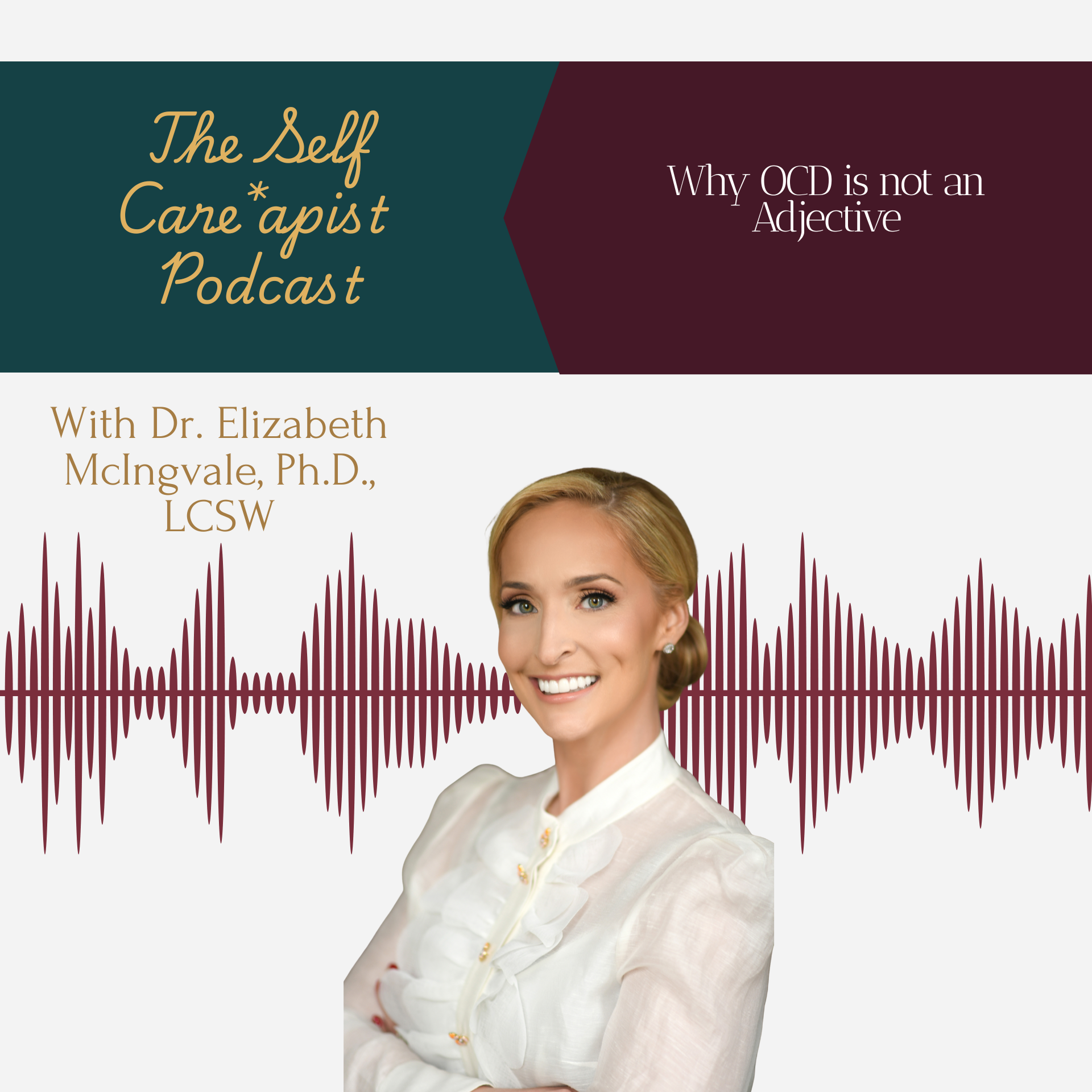We’ve all heard someone say, “I’m so OCD” because they like a clean desk or color-coded closet. But as Dr. Liz McIngvale explains in this episode, that phrase is not only inaccurate, it’s harmful and dismissive. OCD isn’t about being neat. It’s a debilitating condition that demands specialized care. And the gold standard for that care? Exposure and response prevention therapy.
Dr. McIngvale shares her personal and professional journey with OCD, from being diagnosed at 12 to leading one of the country’s few residential programs for OCD treatment. Her story and insights offer a powerful look at what OCD really is, and how we can treat it with compassion and clinical precision.
What OCD Is and Isn’t
Dr. McIngvale begins with a clear distinction between Obsessive-Compulsive Disorder (OCD) and Obsessive-Compulsive Personality Disorder (OCPD). While OCPD may involve rigid thinking or perfectionism that’s often ego-syntonic (in line with someone’s values), OCD is defined by distressing, unwanted thoughts (obsessions) and ritualistic behaviors (compulsions) aimed at reducing that distress.
“There’s never enjoyment, never pleasure, and it’s not functional. That’s what differentiates true OCD.”
The Gold Standard: Exposure and Response Prevention Therapy
The heart of this episode is Dr. McIngvale’s breakdown of exposure and response prevention therapy, or ERP. ERP is a specialized form of CBT that helps individuals gradually face their fears (exposure) and resist the urge to neutralize the anxiety with rituals (response prevention). While ERP is effective across all subtypes of OCD, it must be delivered thoughtfully and with appropriate training.
She emphasizes that good ERP is not about fear factor-style challenges—it’s about returning patients to the life they want.
“ERP should be values-based. What would you be doing if OCD wasn’t interfering? That’s where the work begins.”
Missed Diagnoses and Misunderstood Subtypes
Dr. McIngvale discusses how subtypes, like harm OCD, sexual intrusive thoughts, or religious scrupulosity, are often missed or misdiagnosed. Many clients are afraid to share these symptoms for fear of being judged. This makes accurate assessment and trust-building vital to effective treatment.
She also highlights how postpartum OCD is often confused with postpartum psychosis in media portrayals, creating confusion and fear.
How to Get Trained in ERP
For clinicians, Dr. McIngvale stresses that ERP is not something you can learn in a weekend. True expertise comes from immersive training, supervision, and consultation—ideally within a specialty clinic.
“We don’t need more people saying they treat OCD. We need more people truly trained to do it well.”
She introduces her newest project, MHNTI, a training and consultation platform aimed at providing clinicians with accessible, expert-led CEUs and real-time support across specialties.
What Clinicians Need to Know
Dr. McIngvale’s message is clear: If you don’t specialize in OCD, don’t try to treat it. Do a proper assessment. Use validated tools like the Y-BOCS (Yale-Brown Obsessive-Compulsive Scale). Know when to refer out. And above all, commit to learning what ERP really is and how it works.
Why This Episode Matters
This conversation isn’t just for therapists. It’s for anyone who wants to understand what OCD really looks like and how to advocate for effective care. Whether you’re a clinician seeking to sharpen your skills or someone seeking help, this episode demystifies exposure and response prevention therapy and dismantles stigma with clarity and heart.
Tune in now to learn why OCD is not an adjective.

+ show Comments
- Hide Comments
add a comment